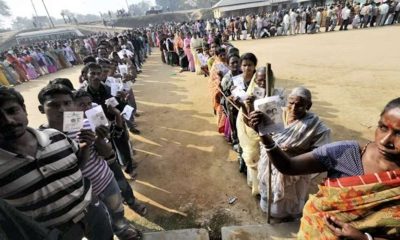Health
Suffering from Type 1 Diabetes? Here’s to know how nanotherapy can help in its treatment
Are you suffering from Type 1 diabetes? If yes, then there is good news to control insulin levels in your body. New research has found that nanotheraphy can help in the treatment of Type 1 diabetes. Here’s to know what is nanotherpahy and what has been revealed in the study?
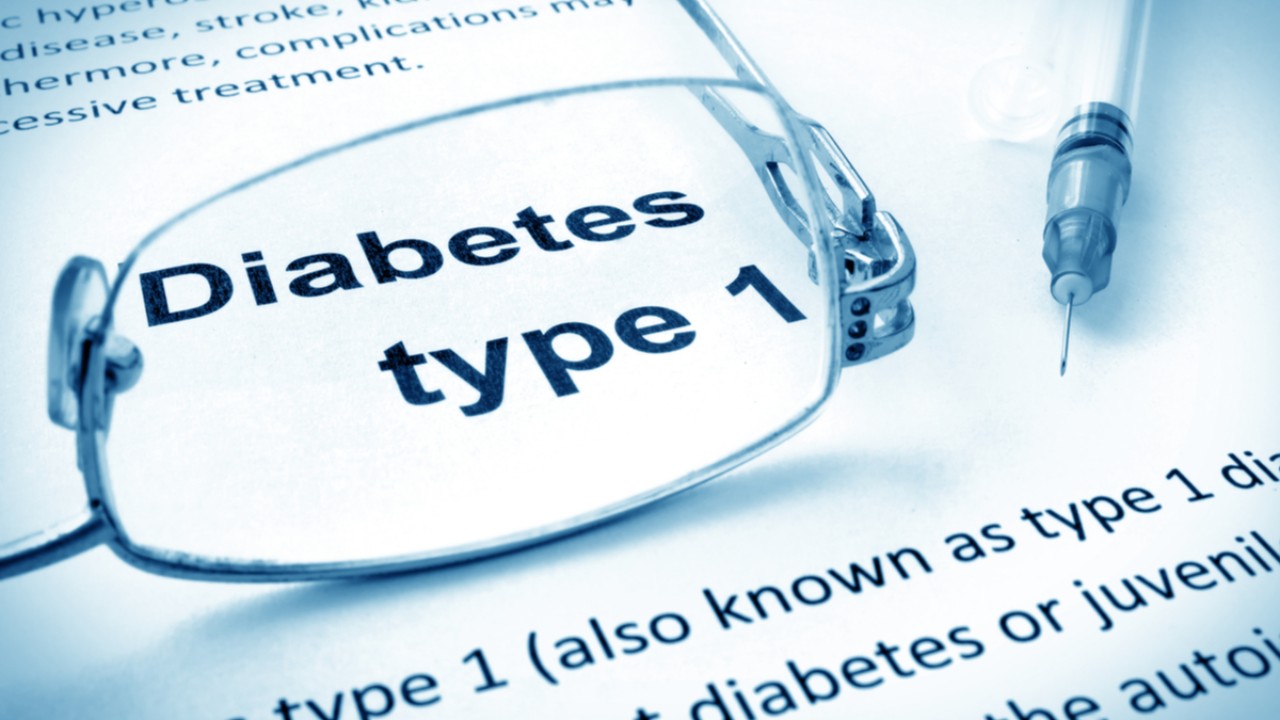
Type 1 Diabetes is also known as juvenile diabetes or insulin-dependent diabetes. It is a chronic condition in which little or no insulin is produced by the pancreas. Insulin is that hormone that is required to allow glucose to enter into our cells to produce energy. However, this type 1 diabetes appears during childhood or adolescence age. Now, there is good news for all type 1 diabetic patients. New research has found that nanotherapy has the potential for treating type 1 diabetic patients.
Where and by whom study has been conducted?
Meanwhile, a study has been conducted by a team of researchers at Northwestern University. They have developed a technique to make immunomodulation more effective. This study was published in the Nature Nanotechnology journal. It was led by a team of researchers.
What has been found by the researchers?
The researchers have generated a new form of immunosuppression. It is basically capable of targeting specific cells which are transplanted without affecting wider immune responses.
What do researchers say?
According to Scott, a member of CARE, the drug is typically given at a lower dosage to avoid the effect of rapamycin during treatment. It is given orally to the patients. But he also mentioned that in case of a transplant, enough rapamycin is given to suppress T cells in the patient’s body.
What is rapamycin?
According to the official statements, rapamycin is commonly used to suppress immune responses during other types of treatments and transplants. It is notably used for its wide range of effects on many types of cells in our body. It is typically given to the patient orally. However, its dosage needs to be monitored carefully to prevent its toxic effects on our bodies. While in islet transplantation it is not much effective in a lower dosage.
Health
India registers 313 new Covid cases, active cases reach 2,041, 3 deaths recorded in last 24 hours
The currently available data suggests that the JN.1 variant is neither leading to an exponential rise in the new cases nor a rise in the hospitalization and mortality.
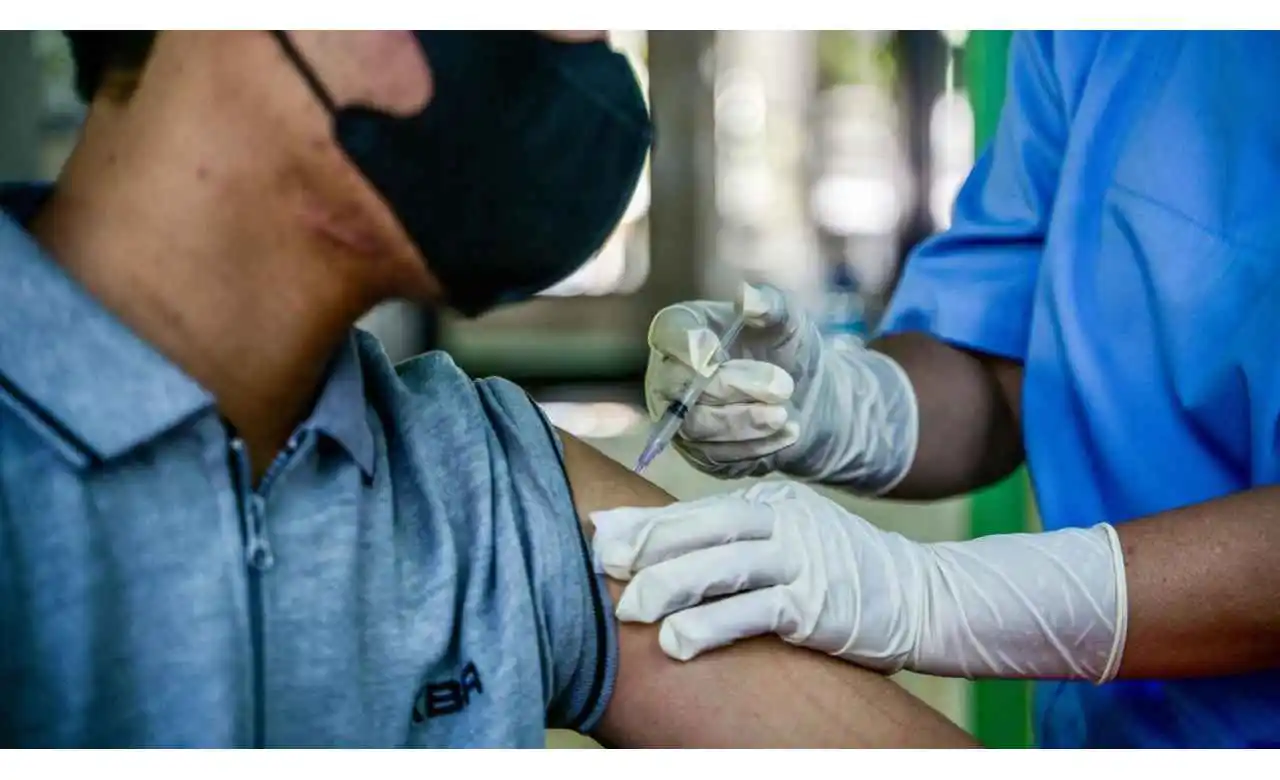
India saw a single-day rise of 313 new Covid cases, while the active caseload has declined to 2,041, the health ministry said on Saturday. Three deaths: two from Karnataka and one from Maharashtra were reported in the last 24 hours.
According to the ministry website, the number of active cases in the country stood at 2,331 on Friday. The number of cases of Covid had dropped to double digits till December 5, but it began to start increasing after the emergence of a new variant and cold weather conditions.
According to reports after December 5, the highest single day rise of 841new cases was reported on December 31, 2023, which is 0.2% of the peak cases reported in May 2021. Of the total active cases, a large majority of these (around 92%) are recovering under home isolation.
The currently available data suggests that the JN.1 variant is neither leading to an exponential rise in the new cases nor a rise in the hospitalization and mortality. India has witnessed three waves of Covid in the past with its peak incidence of daily new cases and deaths being reported during the delta wave in April June 2021.
At its peak, 414,188 new cases and 3915 deaths were reported on May 7, 2021. Since the pandemic started in early 2020, there have have been 4.5 crore people who have got infected and this has resulted in the death of 5.3 lakh persons in a total time span of four years.
According to the ministry data, the total number of persons who have recuperated from the disease are 4.4 crore with total recovery rate recorded is 98.81%. A total number of 220.67 crore doses of Covid vaccines have been administered in India so far.
Health
India registers 605 new COVID-19 cases and 4 deaths in last 24 hours
The number of people who have recovered from the disease has gone up to 4,44,81,341, an increase of 648 since Sunday morning. In Kerala a 70 year-old male with chronic obstructive pulmonary disease (COPD) and 81year-old male with T2DM and HTN, and in Karnataka, a 48 year old male with CA and TB died, while one person in Tripura succumbed to COVID.
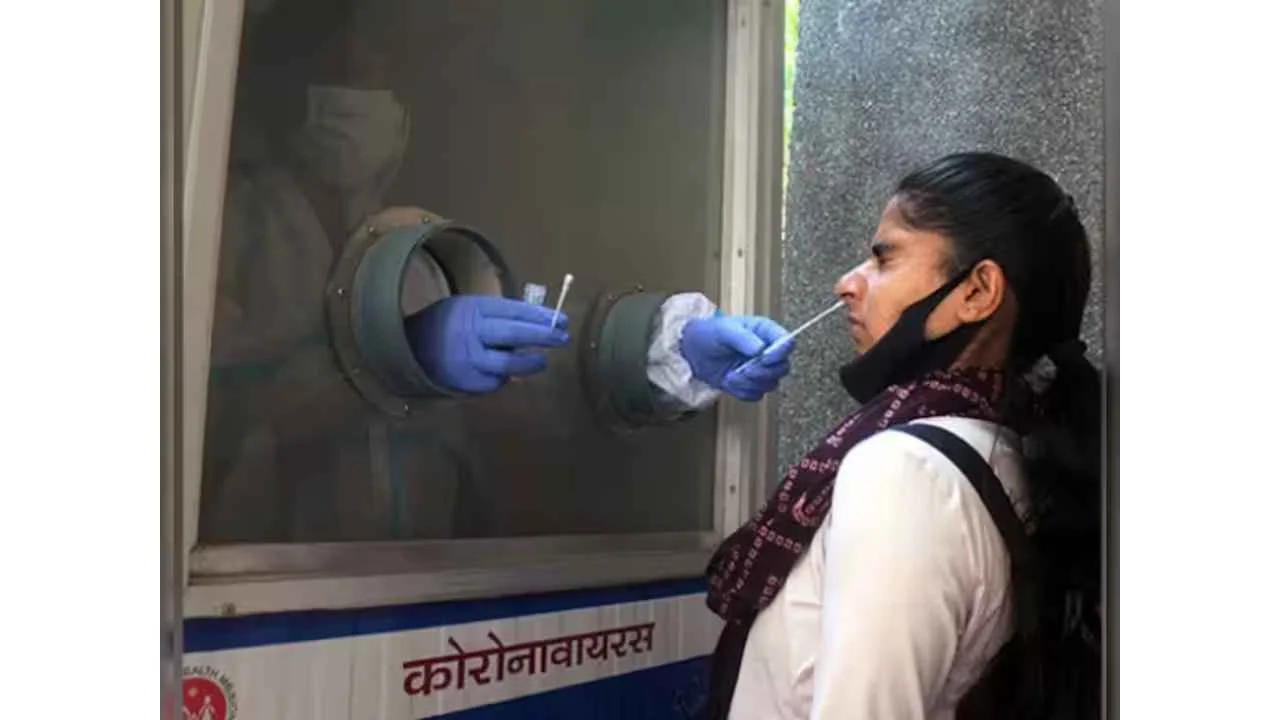
India recorded 605 fresh COVID-19 cases and four deaths in the last 24 hours. The active cases have increased to 4002, while India’s overall COVID case tally stands at over 4.5 crore (4,50,18,792). The death toll was recorded at 5,33,396 with four new deaths – two from Kerala and one each in Karnataka and Tripura – reported in the last 24 hours, the data updated at 8am stated.
The number of people who have recovered from the disease has gone up to 4,44,81,341, an increase of 648 since Sunday morning. In Kerala a 70 year-old male with chronic obstructive pulmonary disease (COPD) and 81year-old male with T2DM and HTN, and in Karnataka, a 48 year old male with CA and TB died, while one person in Tripura succumbed to COVID.
The Indian Council of Medical Research (ICMR) reported that 11,838 doses of the vaccine had been administered in the country till January 7. The data is a compilation of the Integrated Disease Surveillance Programme (National Centre for Disease Control), media bulletins and websites of various states at 8am on January 4.
As the winter season sets in, health experts are highlighting a sudden surge in viral infections, influenza, and COVID-19 cases. Dr Nikhil Modi, a senior pulmonologist at Indraprastha Apollo Hospital, pointed out that the decrease in temperature leads to increase in moisture in the air, low wind speed and also causes an increase in pollution levels. This contributes highly to various infections.
Due to the decrease in temperature the fog combines with the pollution in the air which further leads to the formation of smog. This condition of the atmosphere can cause different types of infections and difficulty in breathing. Both the state and the central government are keeping a close watch on the new Omicron Subvariant JN.1. J.N.1 is a Variant of Interest (VOI) which is under intense scientific scrutiny.
Health
India records 774 new Covid-19 cases, 2 deaths in 24 hours
The number of daily cases was in double digits till December 5 but it started to rise again amid cold weather conditions and after the emergence of new Covid-19 variant, JN.1.
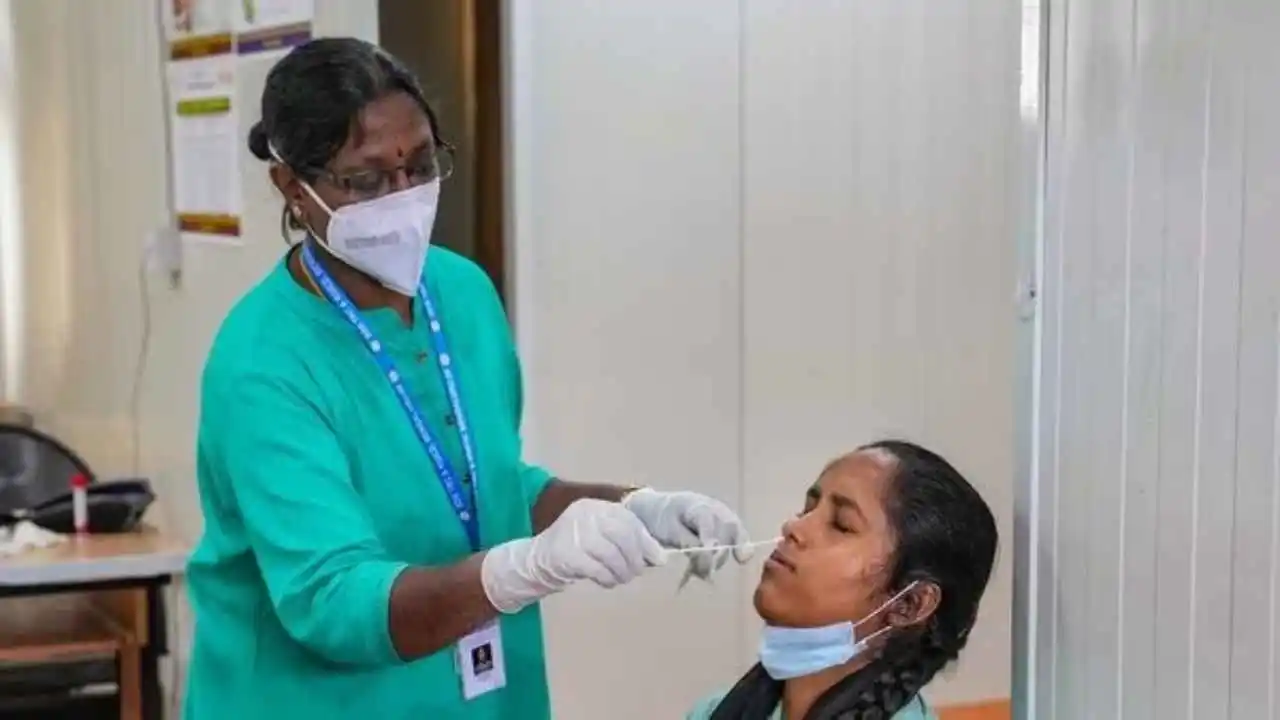
India on Saturday had a single-day rise of 774 Covid cases while the number of active cases stood at 4,187, the Union health ministry said. As many as two deaths – one each from Tamil Nadu and Gujarat were reported in a span of 24 hours. Of the 4,187 active cases, the majority (over 92%) are recovering under home isolation.
The number of daily cases was in double digits till December 5 but it started to rise again amid cold weather conditions and after the emergence of new Covid-19 variant, JN.1. The central government has asked the state government and union territories to maintain a constant vigil amid an upward trend in the number of Covid-cases and the detection of the JN.1 sub variant in the country.
According to reports after December 5, the highest single-day rise of 841 cases was reported on December 31, 2023, which was 0.2% of the peak cases reported in May 2021. A health official said that the JN.1 variant is neither leading to an exponential rise in new cases nor a surge in hospitalisation and mortality in the country.
The Karnataka government has made the Covid test mandatory for those with Influenza like illness (ILI) or Severe Acute Respiratory Illness (SARI). Karnataka Health Minister Dinesh Gundu Rao said more than 7000 tests are being done every day and the COVID positivity rate is 3.82%. The positivity rate in the state has not come down yet.
He said those with symptoms are being monitored and tested. Those who are in isolation at home have been told to take extra care. He added it is expected that the trend of decreasing Covid cases may start next week in Karnataka. India has witnessed three waves of Covid-19 in the past with the peak incidence of daily cases and deaths being reported during the Delta wave during April-June 2021. At its peak 4,14,188 cases and 3915 deaths were reported on May 7, 2021.
-

 2024 Lok Sabha Elections19 hours ago
2024 Lok Sabha Elections19 hours agoMallikarjun Kharge vows to continue politics till his last breath to defeat BJP
-
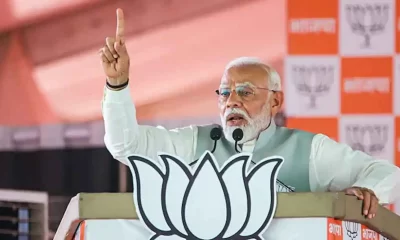
 2024 Lok Sabha Elections22 hours ago
2024 Lok Sabha Elections22 hours agoPM Narendra Modi slams Congress over Sam Pitroda’s inheritance tax remarks, accuses Congress of intending to impose higher taxes
-

 Trending23 hours ago
Trending23 hours agoA waiter’s life: Social media users go emotional on watching viral video
-

 Entertainment21 hours ago
Entertainment21 hours agoMadhuri Dixit, Karisma Kapoor recreate Dil To Pagal Hai dance battle on Dance Deewane
-

 2024 Lok Sabha Elections19 hours ago
2024 Lok Sabha Elections19 hours agoNitin Gadkari says he’s better now after collapsing at election rally in Maharashtra’s Yavatmal
-

 Entertainment1 hour ago
Entertainment1 hour agoBollywood stars Salman Khan, Alia Bhatt, Rekha, Sonakshi Sinha, Aditi Rao Hydari attend Sanjay Leela Bhansali’s Heeramandi premiere
-

 India News3 hours ago
India News3 hours agoTamannaah Bhatia summoned in illegal IPL streaming app case, to appear before cyber cell on April 29
-

 India News2 hours ago
India News2 hours agoLandslide hits Arunachal Pradesh, highway linking Indo-China border affected








